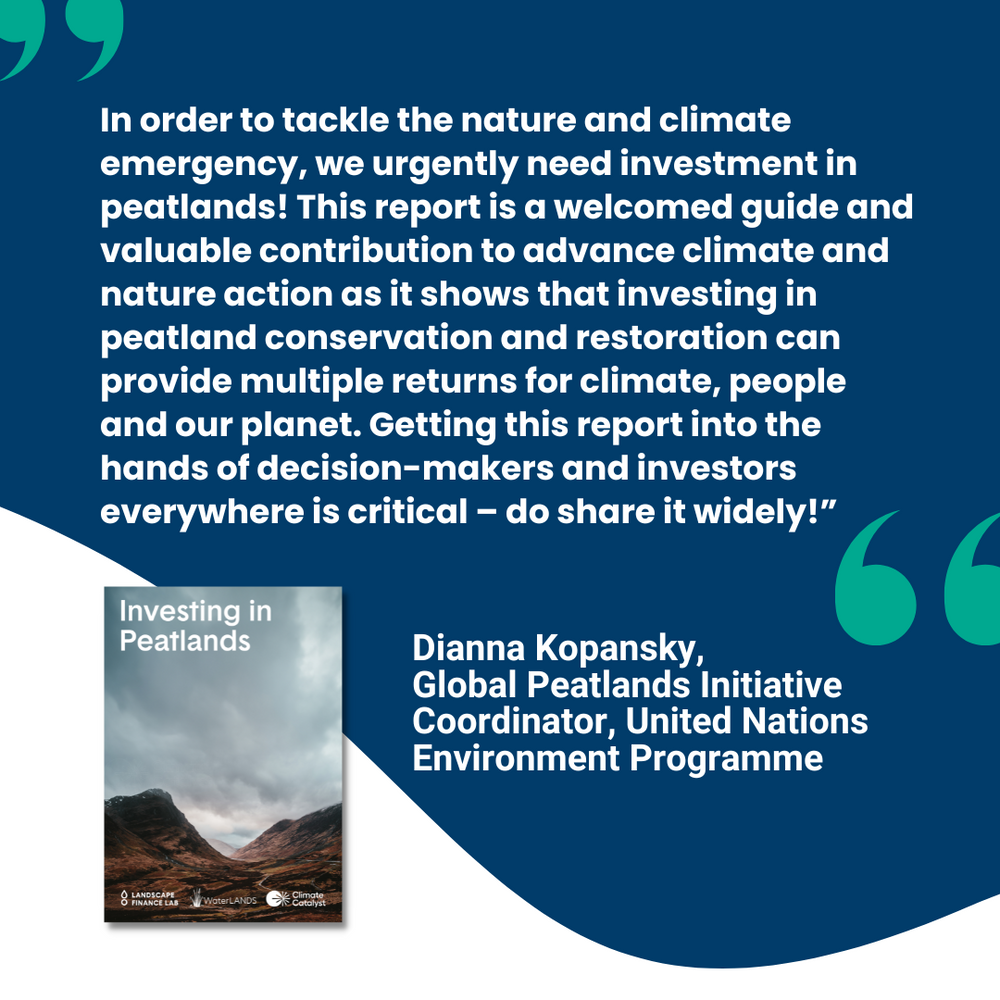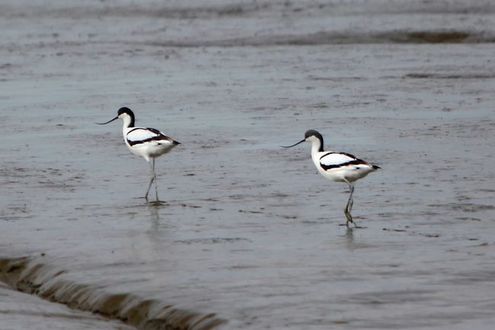On Thursday January 18th, WaterLANDS, alongside the Landscape Finance Lab and Climate Catalyst, co-launched the Investing in Peatlands publication in collaboration with 14 leading global and European climate, conservation and finance organisations.
Healthy peatlands are our planet's most concentrated, space-efficient natural carbon stores and sinks, as well as acting as havens for rare and iconic species, buffering extreme weather events like floods, and providing cultural and archaeological heritage to communities living nearby.
The Investing in Peatlands publication serves as a guideline for nature-focused investors who are interested in exploring peatland opportunities and provides recommendations for growing the emerging peatland finance industry.
Published by the Landscape Finance Lab, Climate Catalyst and WaterLANDS, it brings together contributions from partners spearheading landscape-scale peatland restoration projects and investments across the UK and Europe.
"A high percentage of peatlands are in a degraded state, but restoration can reverse this. Therefore, we need more private investment in peatlands to access all the co-benefits that they provide. This report will be useful in helping investors to understand the role that they can play in restoring and protecting these crucial landscapes," said Renée Kervliet-Hermans, Peatland Code Coordinator at the IUCN UK Peatland Programme.
Published by the Landscape Finance Lab, Climate Catalyst and the EU Horizon 2020 WaterLANDS project, it brings together contributions from partners spearheading landscape-scale peatland restoration projects and investments across the UK and Europe.
Current peatland investments tend to be small, but case studies featured throughout the report showcase how investing in this nascent asset class provides investors with a unique opportunity to deliver financial returns from rapidly developing carbon, biodiversity and water markets, whilst supporting a range of meaningful co-benefits including climate resilience, nature regeneration, green business and job creation, and enhanced cultural and leisure amenities for communities - all at landscape-scale.
During the 75-minute launch webinar, experts from across the finance and conservation sector discussed the various peatland-focused investment challenges, alongside the growing opportunities which are highlighted in the report itself.

The Flow Country Green Finance Initiative (Scotland), WaterLANDS (Ireland) and the toMOORow Initiative (Germany), who are leading examples of landscape-scale peatland restoration projects, shared how they approach public and private financing through a blended finance model and develop value chains to generate economic, environmental and social returns in their communities.
“The scale of ambition for peatland restoration globally is clear, yet this is not yet matched by adequate sources of funding. As such, mobilising non-State finances for peatland restoration is key in not only reaching these targets, but generating reportable impact in terms of emissions, water, biodiversity and community benefits. This report is intended to demonstrate to potential private funders, through worked existing success stories, how good science can support real-world impact“ said Shane Mc Guinness, WaterLANDS Co-Coordinator.
The report highlights three clear areas for the investment community to support the scaling up of these investments:
- Catalyse private sector capital: The report urges investors to work with a range of actors both within and outside the investment community to deploy capital into pilot projects to develop proof of concept for peatland restoration projects, and to work with projects to develop robust methodologies and monitoring systems to assess returns on investment.
- Adopt science-based target setting and disclosure: It says investors should use frameworks such as the Taskforce for Nature-related Financial Disclosures, to adopt carbon and nature accounting methodologies and share peatland restoration data using evidence-based standards to build trust and transparency.
- Share best practice across the public and private sectors:


